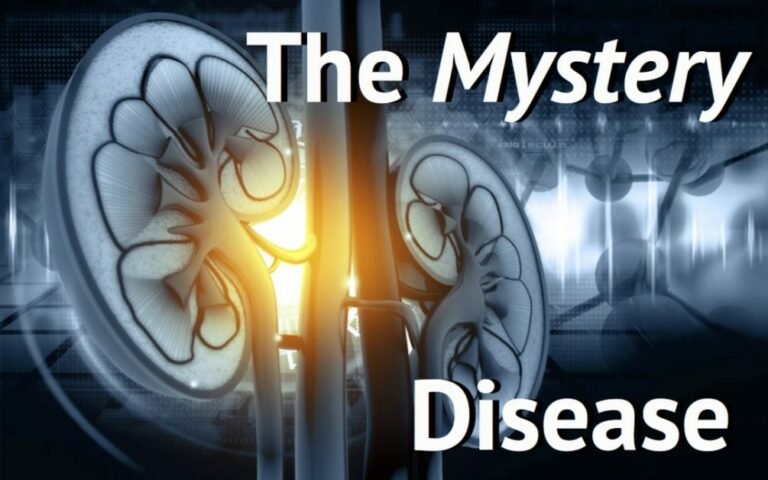How To Manage Brain Fog And Chronic Pain?

In brain fog, a person can show the signs of numerous physical symptoms along with experiencing chronic pain and cognitive issues. Along with it, many people can experience difficulty processing information, trouble focusing, and short-term memory loss. All of these are referred to as brain fog. If these symptoms are present, it is very important that you manage them if you are working or going to school.
Almost 40% of people suffer from chronic pain with brain fog, especially after the age of 40. There is a need to understand the link between chronic pain and brain fog which is still unknown to the scientific community. It can negatively affect the tasks that require your attention and memory. So, it would be best if you adopted some tips for the management of chronic pain accompanied by brain fog. As a result, there will be no negative impact on your daily task performance.

For the management of chronic pain with brain fog, it is beneficial to consult an expert or a physician. They will guide you to correct some factors that contribute to the problem. It includes some changes in the lifestyle, and taking the following steps can help you manage the brain fog from home.
1. Improving Sleep Quality
First of all, there is a need to get sound sleep to reduce the negative impact of chronic pain on cognitive problems. Since chronic pain can negatively impact sleep, brain fog symptoms may develop. Therefore, you need to maintain proper hygiene and sound sleep to reduce brain fog and associated symptoms management. It is a simple remedy that you can adopt at home in consultation with a physician. In this way, you will get long-term results with long-lasting effects in treating chronic pain with brain fog.
2. Performance Of The Physical Activity
As you know, exercise is beneficial for treating different types of problems. Although exercise is not possible for all individuals with chronic pain, it is the best choice for reducing physical pain. Besides, an improvement in cognitive function is also possible with regular exercise. You can choose an exercise requiring less effort, like walking or yoga. These are beneficial for improving your sleep and result in a reduction of brain fog.
3. Avoid Excessive Intake Of Caffeine
It goes without saying that many people believe that caffeine is beneficial for maintaining good health and curing various diseases. When we drink a cup of coffee, a temporary boost of energy levels occurs, but at the same time, there are some side effects of taking caffeine too. It will stimulate your nervous system, and as a result, may negatively impact your sleep. So, if you want to manage chronic pain with brain fog, then you need to reduce the consumption of caffeine.
4. Use Paper And Pencil
Earlier, people had used a calendar to create a to-do list and notes. But using digital applications might not be apt for everyone, especially if they are not able to find the application or calendar in which they wrote their daily schedule. Therefore, it would be best if you are suffering from memory loss to use pencil and paper as they are the traditional tools to create to-do lists rather than the newer digital applications. It will provide you with helpful cues during the writing process, as it will consistently remind you of the work you need to do, along with the places you need to go. So, it is beneficial for you to go places with paper and pencil tools in your hands, for improving your memory and the treatment of brain fog problems.
5. Creation Of Routines
Complying with pre-established strict routines is beneficial to the completion of daily tasks. If you suffer from chronic pain with a brain fog problem, you need to create routines to understand your responsibilities. It will reduce the chances of forgetting things while accomplishing your daily task. To create the routines, make sure that you are using a pencil and pen. It is so because it is a strategy that may complement the memory support of the patient.
6. Use Timers To Improve Memory
If you lose track of time or forget important events, it is beneficial to set a timer as an auditory reminder. It will help you remember important events and dates and avoid missing them. For this purpose, it is best to use alarm clocks or old-fashioned kitchen timers. So, it is another critical step that can be taken for managing brain fog with chronic pain.
7. Remove Clutter
It is often hard to concentrate in an unorganized space, which is overrun with clutter. Therefore, there is a need to get rid of the clutter to improve the management of brain fog. Along with it, it is beneficial for people to get rid of unnecessary belongings to improve concentration and focus.
8. Avoid Multitasking
To manage chronic pain with brain fog, people need to avoid multitasking. It is not true that multitasking is the best way to accomplish a task quickly, but instead, this can result in a loss of concentration in different tasks. Especially when the patient is suffering from brain fog, it is beneficial to avoid multitasking to complete the task. Doing so will result in better concentration on a single task, and improve the attention towards the work.
Lastly, it is beneficial for people to choose a healthy diet over junk food. Eating a healthy diet rich in vegetables and fruits will provide complete nutrients to you. It will help with weight-related health conditions, which otherwise could lead to more serious health issues like diabetes, hypertension, etc. Do not forget to drink plenty of water, which will help manage the symptoms of chronic pain with brain fog.
Thus, these are the critical tips that you can implement to manage brain fog with chronic pain. Ensure that you are paying complete attention to the tips to get a night of quality sleep, and a healthy diet to manage brain fog and memory loss problems properly.
PainPathways Magazine
PainPathways is the first, only and ultimate pain magazine. First published in spring 2008, PainPathways is the culmination of the vision of Richard L. Rauck, MD, to provide a shared resource for people living with and caring for others in pain. This quarterly resource not only provides in-depth information on current treatments, therapies and research studies but also connects people who live with pain, both personally and professionally.
View All By PainPathways






